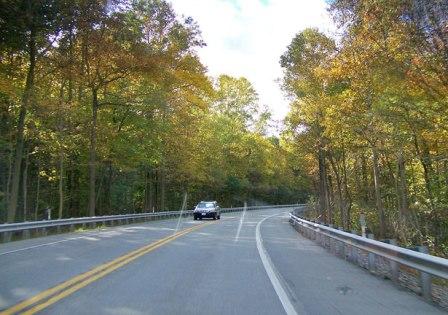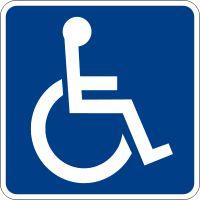
Driving on the Open Road - © Shari Weinsheimer
The Driving Travellers Tips guide gives a concise guide on advice and practical tips to consider when driving abroad. Many travellers drive abroad on their holidays or during their business trips, in order to ensure you have a safe driving experience it is wise to be aware of driving advice for the countries you are going to and be well prepared and familiar with local driving laws and other important considerations.
Travellers Tips - Driving Abroad
Before You Start Your Trip
Do Not Forget To Take
Whilst You Are Abroad
Safety Tips & Considerations
Other Tips and Considerations
Before You Start Your Trip
Do your research on the countries you are going to be driving in (or may be driving in), it is important to familiarise yourself with what to expect with regard local laws, the side of the road vehicles are driven on, speed limits and any other useful driving related information.
Research the driving conditions and the condition of the roads and ensure you will be driving a vehicle that can cope with the weather and environment there.
Check if you need an international driving permit for the countries you are visiting. Check what documentation you will need and any forms you may need to complete before you start your trip.
Check with your insurance company that you are adequately insured for your trip. Check what you also have break down cover should your vehicle break down abroad. If you are not covered, ensure you have the full comprehensive insurance that will cover you for medical expenses in case of an accident overseas.
If you are taking your own vehicle, ensure it is serviced in time and is in good working order. Check that your vehicle complies fully with the regulations of the countries you will be driving in, these regulations vary from country to country, leave yourself time to research this.
Check if you are required to take a Green Card document with you. The Green Card provides for the minimum legal requirements for third party liability insurance in countries where the card is valid.
If you will be hiring a car abroad, check with the car hire company exactly what ID documentation and any other documents they may require.
If you are hiring a vehicle ensure you have the correct insurance cover. The car hire insurance may be the minimum amount required, it is safer to ensure you top up that insurance to ensure you are fully covered.
Do Not Forget To Take
A spare set of keys for your vehicle.
First aid kit along with warning triangle, fire extinguisher, tool kit and spare bulbs.
A properly working spare tyre and appropriate tools.
Check if you are required to have a GB sticker for the countries you will be driving in.
All important documentation including car/motorcycle/vehicle insurance, vehicle registration, driving licence, international driving permit and green card (if required).
All important telephone numbers for insurance companies, breakdown cover and emergency helplines.
Whilst You Are Abroad
Get local knowledge from the hotel, tour operators on the driving conditions, driving rules and regulations and local customs. Find out if there are places to avoid whether for bad roads/conditions or known for crime.
Obey the rules of the road, the local traffic laws and do not break any local laws even if they are considered legal at home.
Ensure everyone in the vehicle uses seatbelts and always lock the car doors. Be aware of leaving the windows open, do not leave windows open when stationary especially at traffic lights.
Try to use main/major roads, avoid using roads that are secluded or isolated.
Be aware of how much fuel you have and ensure you fill up at regular intervals to minimise the chances of running out of fuel.
Take regular breaks when driving, or the passengers should remind the driver to take regular breaks. Do not drive when tired.
Do not drink and drive, many countries have tough policies on drinking and driving and you would find yourself in serious trouble along with putting your life and others at risk.
Avoid driving at night if possible.
If you feel uncomfortable with driving, the conditions, environment or simply difficult to acclimatise away from the environment you are accustomed to, do not drive.
If you are an inexperienced car driver or motorcycle rider, it may be wiser to consider driving abroad when you are more experienced.
Safety Tips & Considerations
Ensure any vehicles you with be driving are in good working order.
When driving concentrate, remain alert and do not panic if confronted with unforeseen circumstances. Exercise caution when driving, do not speed or drive recklessly.
Ensure you wear seat belts and if you are on a motorcycle ensure you wear helmets and any other protective and safety clothing needed.
Beware in some countries where it is considered dangerous to stop at red lights at night due to crime, you may find other drivers going through them. Stay alert and focused at all times.
Make sure the car doors are locked at all times and close windows when stationary or in traffic.
Do not display any valuables in the car including coats and bags in the back seat, it becomes an easy target for thieves. Ensure nothing is on show and put other luggage in the locked boot.
Do not leave important travel documents such as passports, tickets, insurance documents and valuables in the car.
If you are using your own vehicle you may wish to use a good quality strong steering lock. It may act as a visual deterrent to opportunists.
Do not pick up any strangers or hitch hikers.
If you see apparently broken down vehicles with the driver trying to flag you down beware it could be a scam to get you to stop and get out of the car. There have been cases in various countries of this targeting other car drivers. If you see this, do not stop, phone the police to alert them of the broken down vehicle, ensuring if they are genuine they will get help.
If you are not happy with the safety of the vehicle you are going to be driving, do not drive it instead ask for a replacement. See Car Hire Tips for more information & advice.
If you have safety concerns or issues with any busses or coaches you may be travelling on, do not get on the vehicles. Inform your tour/service provider of your concerns.
Try to stay away from travelling in any overcrowded vehicles.
Other Tips and Considerations
Be prepared for the unexpected, do not expect conditions and behaviours to mimic those of the UK.
Look out for pedestrians, they may cross the road at places you do not expect and may not use official crossings.
Be aware of jay-walking, where it is against the law to cross the road other than at designated points. Get local advice when you arrive to check.
In some countries especially in more rural locations and smaller roads beware of other vehicles, farming machinery, animals and other potential hazards appearing when you least expect it.
Do not park in isolated areas, places with poor lighting or in crime hot spots. If there is official secure parking use that instead even if it is more expensive.
Whilst the tips and advice contained in our driving travellers tips is designed to provide travellers with a good working checklist of important considerations when driving or considering driving abroad, it is important to keep things in perspective. There are many travellers who drive abroad without any problems and enjoy doing so, it can be convenient and a great way to augment a holiday. Being fully aware of what lies ahead and conversant with the local laws and protocols can help travellers ensure they enjoy an incident free trip.
Disclaimer: The information given in on this website is given in good faith and to the best of our knowledge. If there are any discrepancies in no way do we intend to mislead. Important travel details and arrangements should be confirmed and verified with the relevant authorities.




